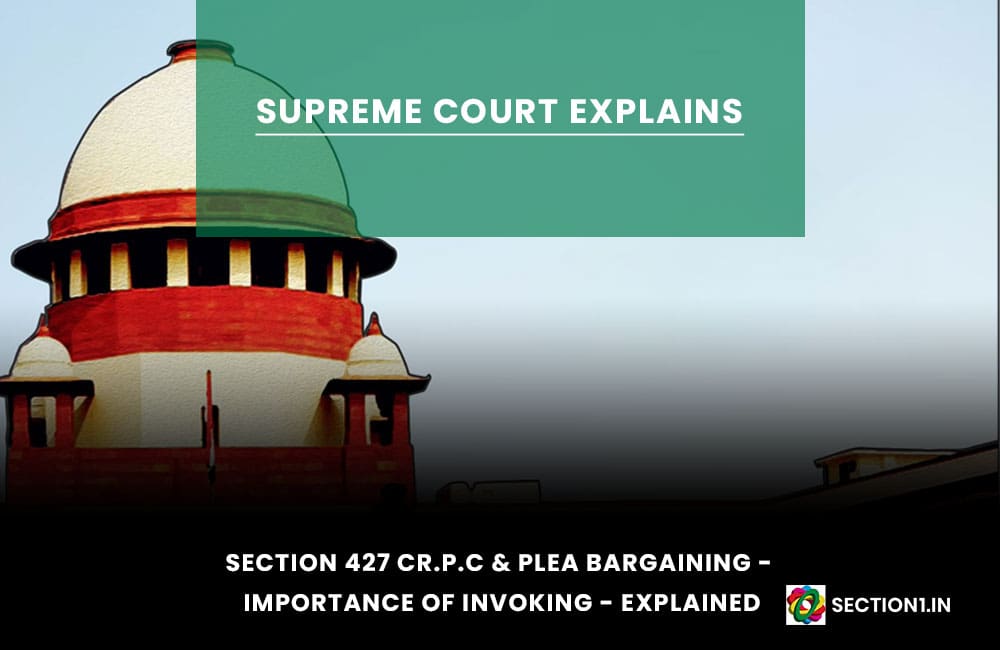9. The plea bargain was with reference to the provisions of Chapter XXI-A of the CrPC. Section 265-G stipulates that the judgment delivered by the Court shall be final and no appeal (except a Special Leave Petition under Article 136 and a Writ Petition under Articles 226 and 227 of the Constitution) shall lie in any court against such a judgment.
Section 427 Cr.P.C: 10. Section 427 provides that when a person already undergoing a sentence of imprisonment is sentenced on a subsequent conviction to imprisonment or imprisonment for life, such imprisonment or imprisonment for life shall commence at the expiration of the imprisonment to which he has been previously sentenced, unless the court directs that the subsequent sentence shall run concurrently with such previous sentence. In other words, sub-section (1) of Section 427 confers a discretion on the court to direct that the subsequent sentence following a conviction shall run concurrently with the previous sentence.
After quoting Mohd Zahid Vs State through NCB – 2021 SCC OnLine SC 1183 Apex court has held as follows:
12. The Trial judge, in the present case, granted a set off within the ambit of Section 428/Section 31 Cr.P.C. No specific direction was issued by the trial court within the ambit of Section 427(1) so as to allow the subsequent sentences to run concurrently. All the convictions took place on the same day.
13. Once the petitioner espoused the remedy of moving a Writ Petition under Article 226 of the Constitution, the High Court ought to have noticed the serious miscarriage of justice which would occur consequent upon the trial court not having exercised specifically its discretion within the ambit of Section 427(1). When the appellant moved the High Court, he was aggrieved by the conduct of the jail authorities in construing the direction of the trial court to mean that each of the sentences would run consecutively at the end of the term of previous sentence and conviction. The High Court ought to have intervened in the exercise of its jurisdiction by setting right the miscarriage of justice which would occur in the above manner, leaving the appellant to remain incarcerated for a period of 18 years in respect of his conviction and sentence in the nine sessions trials for offences essentially under the Electricity Act.
Party: Iqram vs.The State of Uttar Pradesh & Ors – Criminal Appeal No 2319 of 2022 (Arising out of SLP (Crl) No 8238 of 2022) -December 16, 2022.
URL: Download
Files :



